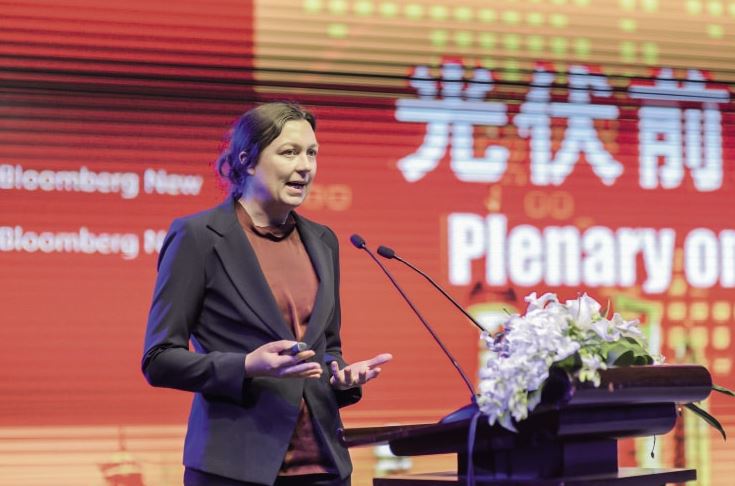Global solar generation capacity could hit around 3.4TW this decade, according to BloombergNEF‘s head of solar analysis Jenny Chase.
Chase published the prediction in an article surveying the current state of solar, and its future prospects, for sustainable energy journal Joule which was also published on the ScienceDirect website.
The article, View from the Solar Industry: We Don’t Need COP26 to Shine, But What Should We Worry About? included Bloomberg’s estimate for the volume of solar which will have been installed worldwide in 2030, with the analyst having estimated 183GW of photovoltaics were installed last year and this year will bring “comfortably more than 200GW.”
Chase cited the polysilicon shortage which drove up solar panel prices last year as one possible headwind, although the solar analyst expects the situation to ease with the arrival of new poly manufacturing capacity this year.
Shortages of land and grid connection points in some of the biggest solar markets could also pose problems for PV although Chase points out the industry’s biggest developers don’t seem to have been significantly slowed by those hurdles yet, with the solar expert adding: “Solar and wind deployment could not now be stopped if we wanted to.”
In terms of how much renewables are needed to hit a net zero world in mid century – with Chase remarking upon how much faster the scale of solar capacity is growing than that of wind – BloombergNEF’s renewables-focused “green” scenario would require 5.3TW of solar this decade – with 1TW of it to power green hydrogen production – and 19.7TW by 2050.
Alternative routes mapped by the analyst lean on the nuclear and carbon capture, use and storage technologies which, as yet, are not developing with sufficient speed, and Chase sounded a positive note to readers daunted by the scale of the job required by remarking, in relation to historic forecasts for clean energy roll-out: “As analysts, we are far better at seeing problems in each country than we are at imagining transformative change to world energy systems.”
This content is protected by copyright and may not be reused. If you want to cooperate with us and would like to reuse some of our content, please contact: editors@pv-magazine.com.









By submitting this form you agree to pv magazine using your data for the purposes of publishing your comment.
Your personal data will only be disclosed or otherwise transmitted to third parties for the purposes of spam filtering or if this is necessary for technical maintenance of the website. Any other transfer to third parties will not take place unless this is justified on the basis of applicable data protection regulations or if pv magazine is legally obliged to do so.
You may revoke this consent at any time with effect for the future, in which case your personal data will be deleted immediately. Otherwise, your data will be deleted if pv magazine has processed your request or the purpose of data storage is fulfilled.
Further information on data privacy can be found in our Data Protection Policy.